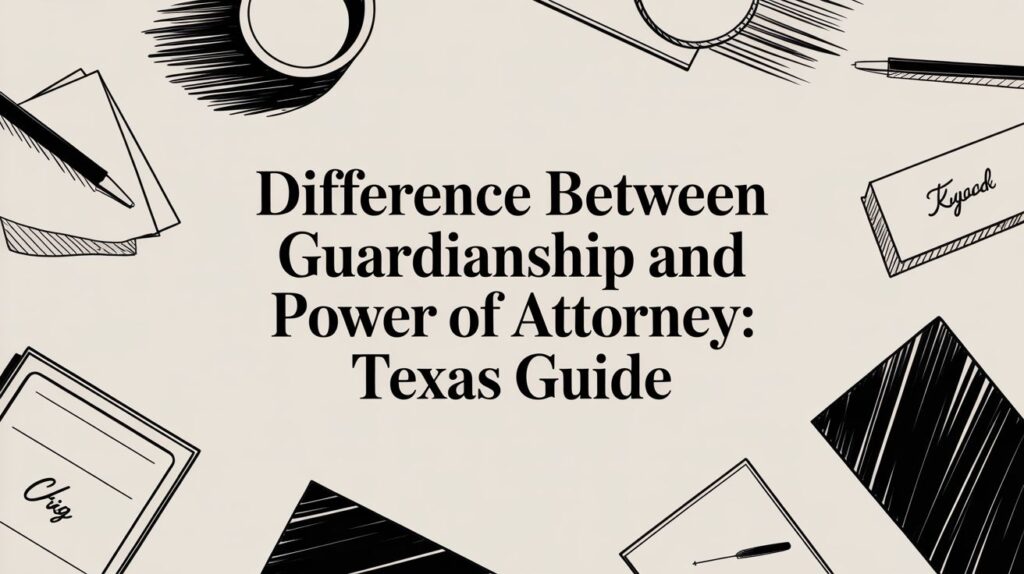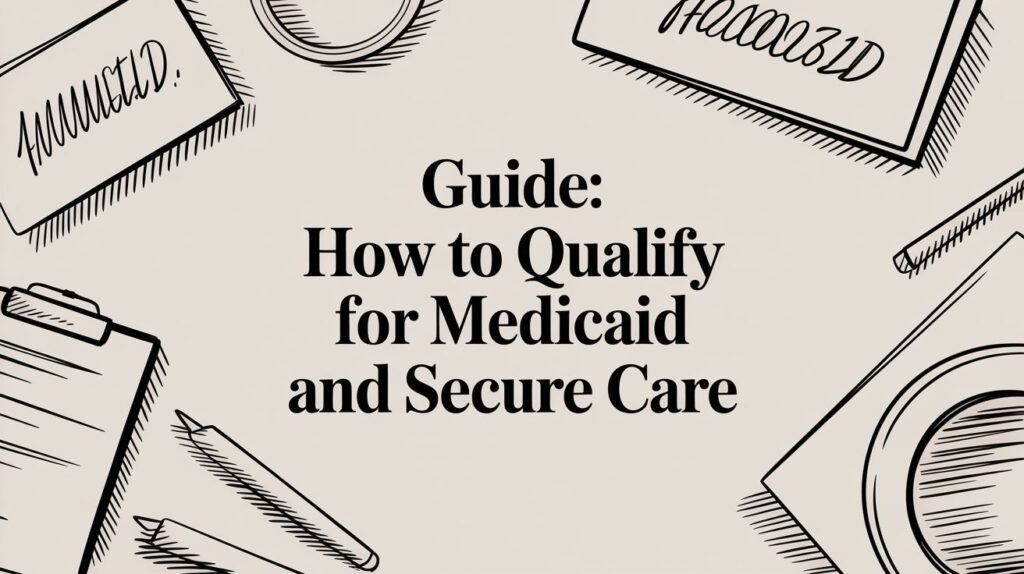Probate is a fundamental step in administering the estate of a deceased individual, encompassing the distribution of assets and the resolution of debts. Understanding probate is paramount in Texas, regardless of whether one has a will. This legal procedure ensures that the deceased’s wishes are carried out and their estate is settled following state laws and regulations.
Probate is a critical mechanism for transferring ownership of assets, paying off debts, and resolving any disputes that may arise among heirs or beneficiaries. While probate may seem intimidating, especially during grief, gaining a comprehensive understanding of the process is essential for effectively navigating the complexities of estate administration in Texas.
In this guide, we will provide a step-by-step overview of the probate process in Texas, offering practical insights and valuable information to assist individuals in filing their wills and probate applications. Additionally, we will explore alternative options for smaller estates, such as the Affidavit of Transfer Without Probate, providing a comprehensive resource for individuals seeking to manage their affairs and ensure the orderly distribution of their estate. Through this guide, we aim to demystify the probate process and empower individuals with the knowledge and tools necessary to navigate this crucial aspect of estate administration in Texas.
Do You Need Probate in Texas?
The need for probate in Texas depends on the estate’s total value left by the deceased individual. Texas law sets a threshold for small estates, which can be avoided if the total value falls below this threshold. Probate proceedings may be unnecessary if the estate’s value falls below this threshold. Alternative methods, such as a simplified probate process or the Affidavit of Transfer Without Probate, may be available to transfer assets to heirs or beneficiaries.
The nature and types of assets owned by the deceased individual also play a role in determining whether probate is required. Certain assets, such as life insurance policies, retirement accounts with payable-on-death clauses, and bank accounts with designated beneficiaries, may pass directly to designated beneficiaries without probate. Jointly owned assets with rights of survivorship may also automatically transfer to the surviving owner without probate.
Understanding these factors is crucial for individuals managing the estate of a deceased loved one in Texas. By assessing the estate’s value and understanding the nature of the assets involved, individuals can determine whether probate is necessary and explore alternative methods for estate administration. Seeking guidance from legal professionals can help navigate these considerations and ensure compliance with Texas laws and regulations.
Understanding Your Will
A valid will offers numerous advantages, including control over asset distribution, naming a preferred personal representative, minimizing potential disputes among heirs, and providing guardship arrangements for minor children. A will lets you specify who will inherit your property, money, investments, and personal belongings upon your death, ensuring that your estate plan reflects your unique preferences and priorities.
A will also allows you to appoint an executor or personal representative to manage your estate and ensure your wishes are fulfilled as outlined in the will. This person is responsible for inventorying assets, paying debts and taxes, and distributing assets to beneficiaries. By selecting a trusted individual to serve as your executor, you can have confidence that your estate will be handled competently and following your instructions.
A will also help minimize potential disputes among heirs, as it provides clarity and transparency regarding your intentions, reducing the likelihood of disagreements and ensuring a harmonious estate distribution. For parents of minor children, a will allows them to designate a guardian to care for them in the event of their death, retaining control over who will assume parental responsibility for them.
The Texas Probate Process: A Step-by-Step Guide
Probate is a legal process crucial in administering a deceased individual’s estate, ensuring the orderly distribution of assets and resolving debts. In Texas, the probate process involves several key steps to facilitate the efficient settlement of the estate and the fulfillment of the deceased’s wishes.
The first step is filing the will with the probate court in the county where the deceased individual resided at the time of their death. If the deceased did not leave a will, the court will proceed with intestate succession, where state law dictates the distribution of assets.
After filing the will, the probate court formally opens the estate and appoints an executor if the will names one. If the will does not name an executor or the named executor is unwilling to serve, the court appoints an administrator to oversee the probate process.
The executor or administrator is responsible for identifying and valuing all assets and debts of the estate, such as conducting an inventory of the deceased’s property, obtaining appraisals for valuable assets, and identifying any outstanding debts or liabilities.
The executor or administrator must notify creditors of the deceased individual’s death and the opening of the estate, giving them a specified period to file claims against the estate for any outstanding debts owed by the deceased. After settling debts and taxes, the executor distributes the estate’s remaining assets according to the will’s terms, if one exists, or follows Texas intestacy laws to allocate the assets among the heirs.
Important Considerations Throughout Probate
Probate proceedings in Texas are a complex and time-consuming process influenced by the complexity of the estate, potential disputes among heirs, and the efficiency of estate administration. Understanding these factors is crucial for individuals administering a deceased loved one’s estate to navigate the process effectively and efficiently.
The duration of probate proceedings in Texas can vary significantly, depending on the complexity of the estate and any potential challenges or disputes that arise during administration. Resolving creditor claims, selling estate assets, or addressing heir disputes can contribute to extended probate timelines.
Costs associated with probate proceedings in Texas include court fees, attorney fees, and compensation for the executor or administrator. Court fees typically include filing fees for initiating probate proceedings and other administrative costs associated with court filings and hearings. Attorney fees may vary depending on the complexity of the estate and the level of legal assistance required throughout the probate process. State law or the terms of the will typically determine the compensation for executors or administrators, who may also be entitled to payment for their services.
The executor or administrator is pivotal in overseeing the probate process and administering the estate. Their responsibilities include initiating probate proceedings, identifying and valuing estate assets and debts, notifying creditors of the deceased individual’s death, managing estate assets, and distributing remaining assets to beneficiaries according to the terms of the will or Texas intestacy laws. Seeking guidance from legal professionals experienced in probate matters can provide invaluable assistance to executors and administrators, ensuring compliance with legal procedures and facilitating the efficient administration of the estate.
Seeking Legal Guidance in Probate Matters
The complexities of probate proceedings in Texas can be overwhelming, especially for those dealing with losing a loved one and estate administration responsibilities. Consulting with an experienced probate attorney is crucial to ensuring the process proceeds smoothly and efficiently while safeguarding the interests of all parties involved.
One of the initial challenges individuals face in estate administration is determining whether probate is necessary for their specific situation. An experienced probate attorney assesses the estate’s circumstances and provides informed guidance on whether you need probate proceedings. They can offer valuable insight into the most appropriate course of action, whether it involves pursuing probate or exploring alternative methods of estate administration.
Another key benefit of consulting an experienced attorney is that they can navigate the probate process efficiently. They can guide individuals through each stage of estate administration, from filing the initial petition to closing the estate, leveraging their expertise and experience to streamline the proceedings and minimize delays or setbacks.
Ensuring the validity of a will is also essential for individuals who have executed a will. A probate attorney can review the terms of the will, assess its validity, and identify potential issues or deficiencies that may arise during probate proceedings. They can help create a legally sound and enforceable will that accurately reflects their intentions.
In conclusion, consulting with an experienced probate attorney in Texas is essential for navigating the complexities of estate administration and probate proceedings. Individuals can benefit from informed advice, strategic advocacy, and personalized support tailored to their needs and circumstances by seeking legal guidance.








